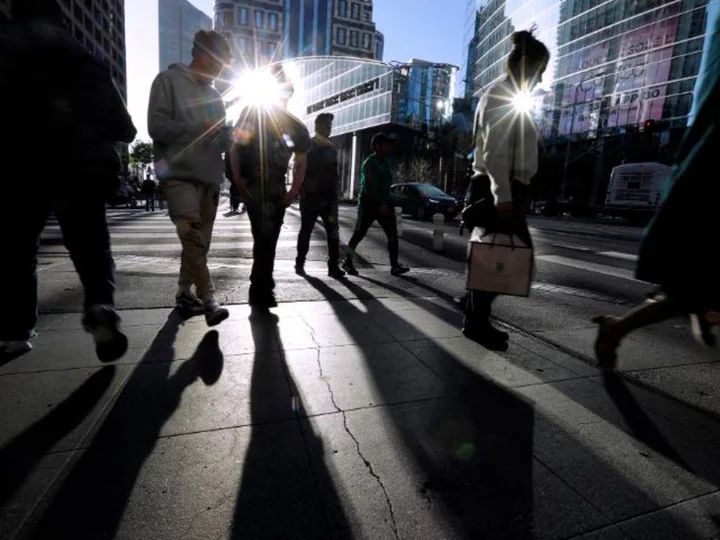US business economists are optimistic that the banking and debt ceiling turmoil won't turn into full-blown crises; however, a majority of them also believe a recession is still in the cards — although likely starting later than previously thought, according to a new survey released Monday.
About 59% of 42 economists surveyed by the National Association for Business Economics earlier this month said they believe it's more likely than not that the United States will enter a recession in the next 12 months, according to the May NABE Outlook, which provides a consensus macroeconomic forecast from dozens of professional economists.
While that share is largely unchanged from surveys conducted in February and December 2022, the latest forecast shows a further kicking of the can down the road in terms of when a recession could start. In February, the majority of economists said a downturn could start in the first half of the year; now, that's shifted to the third quarter or later.
There was, however, greater consensus on inflation, the Federal Reserve's rate-hiking counterattack, banking turmoil and debt ceiling uncertainty.
"Most respondents indicate the banking crisis is contained but ongoing, with only about one-fifth believing it will worsen," Dana Peterson, NABE Outlook Survey chair and chief economist at the Conference Board, said in a statement. "A majority of panelists believes breaching the debt ceiling will not bring on a global financial crisis unless an impasse persists for several weeks. Most respondents believe de-dollarization is not a threat over the foreseeable future."
More than half (55%) of surveyed economists believe the debt ceiling will be raised, 42% believe the debt ceiling will be suspended, while 3% believe the United States will default on its debts.
The biggest negative year-ahead risk cited by a plurality of respondents was "too much monetary tightness."
Since March of last year, the Fed has engaged in a ratcheting up of monetary policy, raising its benchmark interest rate 10 consecutive times, in an attempt to slow down inflation.
The NABE economists expect that inflation will continue to moderate; however, a majority of respondents believe it'll take until 2025 or later for the Fed's primary inflation gauge (the core Personal Consumption Expenditures index) to reach the 2% target.
The economists surveyed expect interest rates to remain elevated through the rest of the year, and nearly half expect that the Fed will start cutting rates in the first quarter of next year.
The likely causes of a Fed rate cut would be confidence that inflation is slowing to its target rate, a spike in unemployment or a severe US recession, according to the survey.

